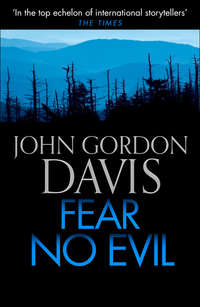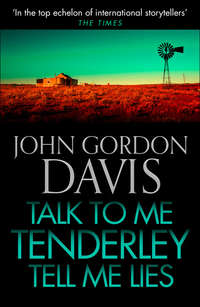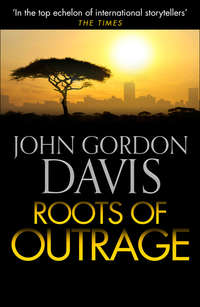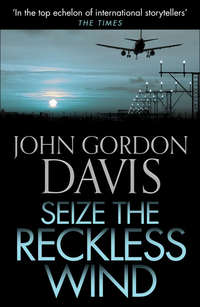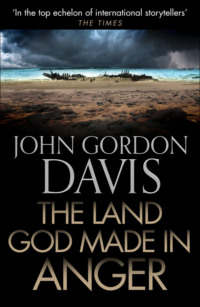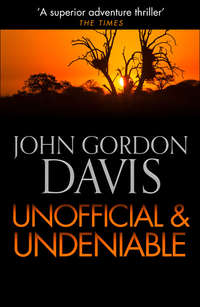
Полная версия
Roots of Outrage
Piet Retief had arrived at Thaba Nchu, where he had been elected Governor of the ‘United Laagers’, and he sent oxen up to Vegkop to haul Potgieter’s wagons back. But the United Laagers were disunited at the outset, a characteristic of the Boers throughout their history. Retief wanted to establish the republic in the east, with a land grant from the Zulu king, while Potgieter wanted to recover his cattle stolen by Mzilikazi, drive him from the land and establish the republic in the north. So there is vengeful Potgieter setting out northwards to deal with Mzilikazi, there is Piet Retief setting out eastwards to the land of the fearsome Zulus. And with Retief’s wagons rolls that of Sarie Smit’s family. And Ernest rides with them. And his fate is sealed.
‘I at last know the meaning of love,’ Ernest breathlessly confides to his journal. There is Ernest having the first real live sexual affair of his life, waiting excitedly each night outside the glow of the laagers’ campfires for Sarie to come creeping out. There is Ernest earnestly proposing marriage in the moonlight (after praying to the Lord for guidance), ‘begging her to return with me to the comfort and security of America once my duties are completed – but alas, she insists her loyalties are to her volk …’ There is Ernest travelling on his delicious illicit honeymoon across the highveld until Retief’s convoy of wagons stands on the lip of the towering Drakensberg, looking down on vast, misty, mauve Zululand far below. Ernest looks down at the daunting descent, at the long shadows cast by the mountain, and he is filled with foreboding: ‘Woe unto the land whose borders lie in shadow’ he records.
Ernest’s sense of duty to Harker-Mahoney compelled him to ride down with Retief’s advance party to parley with King Dingaan for a grant of land. The foreboding stayed with him as they picked their way down into rolling, wooded Zulu country. After many days they arrived at Dingaan’s royal kraal of Mgundgundlovu, ‘the place of the Elephant’.
‘A mighty circular village,’ Ernest records, ‘fenced with high poles, in sidé of which are many concentric rows of beehive-shaped huts all dominated by the Great Place, the huge hut of the king, surrounded by those of his many wives… Beyond is the Hill of Executions where vultures circle, feeding on the bodies of people slaughtered daily. I am filled with trepidation as we wait outside for the king to receive us …’
Ernest’s fear was well founded: King Dingaan was afraid of these Amaboela, these white men who rode swift ‘hornless cattle’ and used strange weapons with devastating effect; men who – his spies told him – had recently routed Mzilikazi, and who now wanted to settle on his borders. When Dingaan finally received these people midst great pomp and praise-singing he spent three days impressing them with his might, by military displays and frightening dancing by his magnificent regiments, the earth shaking under the synchronised stamping of their feet, their battle cries rising up to the skies. But finally he announced he would consider the request for a land grant favourably if Retief recovered cattle that had been stolen by a distant tribe.
Retief and his men were in high spirits as they set out to fulfil the bargain, but Ernest was a very worried young man: he was fearful of the Zulus, ‘deeply suspicious at how simply a grant of land the size of England was arranged. The whole thing reeks of blood …’ When Retief set off he sent two horsemen back to the Drakensberg with the tidings and Ernest seized the opportunity to ride with them, to persuade Sarie to leave this frightening land and go back to America with him.
The voortrekkers’ joy was unbounded when the horsemen toiled up the last crest of the Drakensberg with the news, but the most joyful was Sarie Smit, who had big news for Ernest: ‘I am pregnant …’
Love-sick Ernest was overjoyed. But Sarie refused to go with him to America: her place was with her volk. And so, because his heart and honour ruled his head, Ernest Mahoney went back down the Drakensberg Mountains. And the roots of the Mahoney clan in Africa were set down.
Retief recaptured the stolen cattle and returned to Dingaan’s royal kraal to claim his grant of land. Dingaan made his mark on the deed Retief proffered, then leapt up and shouted: ‘Kill the wizards!’ Warriors fell on Retief and his men from all sides, dragged them up to the Hill of Executions and clubbed them to death. Then, plumes dancing, assegais flashing, the impis set out across the land to slay the voortrekkers encamped at the foot of the Drakensberg. Hundreds were slain in the terrible massacre that followed, hundreds of wagons burned, twenty-five thousand head of cattle driven off. Ernest and Sarie survived because they were encamped miles from the main killing grounds but the whole of her family was butchered. The surviving voortrekkers were in a dreadful plight as they awaited the next onslaught and desperately hoped for reinforcements to arrive from the highveld. ‘Is there a curse on this land that lies in shadows?’ Ernest chronicled.
At last, the prestigious Boer Andries Pretorius descended the Drakensberg and rallied the beleaguered trekkers. He mounted a commando of five hundred men and set off to do battle with Dingaan. En route a Holy Covenant was taken that if God gave them victory they would forever hold the anniversary of the battle-day hallowed, that they would build a church in thanksgiving and forever live according to His laws.
Pretorius chose his battleground on the banks of the Blood River, where two sides of his laager were protected by the confluences. In the ensuing battle five hundred Boers defeated twelve thousand magnificent Zulu warriors, killing three thousand of them as they hurled themselves against the laager. Not one Boer life was lost. And thus was the conviction born amongst these simple, God-fearing folk that God had entered into a covenant with them, as He had with Moses and his Israelites, and that henceforth everything they did would be with His blessing. Thus was a theocracy born. It was to survive a hundred and fifty years.
Ernest took part in the Battle of Blood River. That night he wrote in his chronicle:
… while I am as thankful to the Lord as any, it can only be said that it was not a battle in the normal sense, but a mass execution of a magnificent army heroically taking on superior weapons. No army of white men, I believe, would have been so valiant, so disciplined, as these Zulus today … The Boers are convinced that the Lord has accepted their Covenant. But as a trained theologian, albeit a poor example, I am by no means sure: it was surely the musket that won the day – as it is winning in America against the Indians, for why should the Lord make a bargain with one tribe at such tremendous and heartless expense of another? And while I admire these Boers, and applaud their piety, it worries me that they are fond of referring to Genesis where it says that God made the sons of Ham black, to be hewers of wood and drawers of water …
And so the Boers set up their republic of New Holland, electing their volksraad, building their church. Ernest married his beloved Sarie (‘Such happiness as I have never imagined possible …’ his chronicle records). They built a hut as storage for Harker-Mahoney and began to trade in ivory and hides with what few vessels braved the sandbars. Sarie was pregnant again when the British came sailing up the coast to put an end to this impertinent new republic.
The Boers are outraged. They left their farms in the Cape Colony and trekked into the savage unknown because of Britain’s unjust maladministration, they braved the dreaded Mzilikazi, overcame the steep Drakensberg Mountains, suffered the bloody treachery of Dingaan, braved his fearsome Zulus at Blood River, and now that they have at last got their republican freedom along come the lordly British to take it all away. Personally, I understand the British view-point: the Boers are Her Majesty’s subjects who have established an illegal regime and, I hear, have seized Zulu children to work as ‘apprentices’ in a thinly disguised form of slavery … But my Sarie does not understand: she rode over to the beach as the British disembarked and, astride her horse, pointed at her swollen belly and informed the commanding officer and his admiring men that her forthcoming son was not only an American citizen but a Boer to boot and that they would have to trample over her dead body, and numerous of their own, if they imagined that the young Queen Victoria was going to deprive her unborn child of its republican birthright. ‘I would rather walk barefoot over the Drakensberg again than submit to British rule!’ cried she …
The Boers furiously laid siege to them at the lagoon, but reinforcements arrived overland and the Boers were defeated. And Sarie Mahoney kept her pledge.
So the Boers abandoned their new homesteads, trekked back over the Drakensberg and established their republics on the highveld, the Orange Free State, and the Transvaal Republic. The British government was unwilling to spend money on military campaigns and administration so, after a few skirmishes and considerable bluster, it formally recognised the legal independence of these two republics, in 1852 and 1854.
And so the Great Trek was over, twelve years after it began. The Boers at last had their republican freedom, without the accursed British laying down the law, without missionaries meddling and blaming them for the savagery of Africa, without vagrants roaming unpunished. There was no more egalitarian nonsense: a black man knew his place again. It was the Lekker Lewe once more, limitless land again, proper labour again, and security at last. Mzilikazi had fled across the Limpopo, and the distant Zulus were the British government’s problem now, like the infernal Xhosa.
And a problem they were: in the following decades the British had to fight three more Kaffir Wars and re-annex the land across the Fish right up to the border of the new colony of Natal. And the British had plenty of trouble with the Zulus too. Dingaan’s grandson, Cetshwayo, began to weld his people back together, and there was cattle-thieving, and warlike noises again. Then, on the eastern frontier, came the Great Cattle Killing, and there was chaos.
It was a desperate act by the Xhosa to rid themselves of the British: it was national self-immolation. A Xhosa girl had a vision that if the Xhosa nation slaughtered all their cattle and destroyed all their crops, all would return a hundred-fold on 18th February 1857 all the ancestors would return from the dead, soldiers from Russia would arrive, and together they would drive the British into the sea. So the destruction began. The grazing lands became littered with rotting carcasses, the clouds of smoke barrelled upwards. The colonial government sent officials across the Fish to dissuade the Xhosa, but there was only black euphoria that paradise was at hand. On 17th February the last beasts were slain, the last maize burned, and the people waited for the glorious morrow.
The great day dawned silently, for there was no lowing of cattle or bleating of goats to be heard. The people searched the horizon for the hordes of ancestors driving great herds of cattle. As the sun approached its zenith excitement was intense, but the sun began to descend and no hordes appeared, no Russian ships were sighted. Then sunset came, and panic swept the land, weeping and wailing. The promised day was gone, the country was devastated, and tomorrow the starvation would begin.
The months that followed were horrific. Out there beyond the Fish the stench of decomposing flesh fouled the air, blackened maize fields turned to dust; eighty thousand Xhosa died of starvation, their unburied corpses rotting amongst the carcasses of their animals. And across the river staggered the wretched starving people, begging the colonists for food. Harker-Mahoney had opened a branch on the eastern frontier; the manager wrote to Ernest in the Transvaal:
… once fed, they plead to stay but we have to deny them, and they stagger on towards the Cape. I have heard reports of cannibalism, and starving children abandoned by their parents. My neighbour, McPherson, has found a Xhosa baby left by his mother in a fork of a tree …
What could he do with a starving abandoned baby but take it in? He named the boy Felix. Several years later, visiting American preachers converted Mr McPherson and his family to Mormonism, so they decided to emigrate to America, where the religion had taken strong root. So Felix became the first Xhosa to emigrate to America. Many years later his great granddaughter was to return to South Africa to set it to rights.
But the crisis of the Great Cattle Killing had little impact on the Boer republics in the north – that was Britain’s problem now.
It was a rough-and-ready but pleasant life up there; the republics were bankrupt and inefficient, but it was the Lekker Lewe again. Farming was the only real economy. In the pleasant village of Pretoria, the capital of the Transvaal republic, Ernest had established a trading depot for Harker-Mahoney, exporting cattle, hides and ivory, and importing American products. Life in southern Africa muddled along in comparative peace after Britain gave up on the bankrupt Boer republics. And then diamonds were discovered, and then gold. Fortune hunters from around the world descended, and the Boer War came about.
Gold – that was the reason the mighty British Empire waged war on the tiny Transvaal Republic. The whole balance of power in the region had changed, Britain was in danger of losing her paramountcy in southern Africa to these undeserving Boers, and Britain needed gold to maintain her position as the leading banker in an industrially expanding world. Further, she intended to extend her colonial power from Cape Town to Cairo, and this tinpot Boer republic stood in her way. The only solution was to make it part of the empire. First Britain tried economic strangulation, encirclement to cut the Boers off from the sea so that they would be forced to rejoin the Cape Colony. When that failed Britain promoted a rebellion by the foreigners on the gold reefs, demanding the vote. When that was crushed Britain mobilised her imperial army on the excuse that British subjects were being treated ‘like helots’.
It was a vicious, scorched-earth war the British waged: Boer farms were put to the torch, their crops and homesteads sent up in smoke, their livestock shot or driven off, their women and children herded off to concentration camps where twenty-eight thousand of them died of malnutrition and disease. For three years the war raged, 1899 to 1902. Only devastating attrition drove the Boers to discuss peace. The British offered the Boers financial aid and self-government in a few years in a union with the Cape and Natal colonies; but the most significant concession concerned the status of black people: the question of whether blacks would be given the vote in the new South Africa would be decided only after self-government had been granted.
The bitter-enders wanted to fight on: not to do so meant that almost a century of suffering had been in vain – Slagter’s Nek, the Kaffir Wars, the Great Trek, the battles of Vegkop, Blood River, this terrible war, their whole hard-won independence … But the British pressure was now overwhelming, the countryside was exsanguinated, their very livelihoods destroyed, their women and children dying. Was it not better to lose the war but win the peace? They would get their self-government, albeit in a union with Cape and Natal colonies – and the dreaded question of the voting rights of natives would be decided by them, not by the British. And would not the Boers come to dominate the union government – would they not then have beaten the British at their own bloody game?
The debate was angry, but finally the bitter-enders threw in their hand so as not to split the volk further. And the commandos rode back to what was left of their farms, to try to rebuild their devastated lives.
Ernest and Sarie Mahoney died before the Boer War, but their son William, and his son Hector, both fought on the side of the British.
‘What was it all for … ?’ William Mahoney demanded in his journal shortly before his death.‘The British thought it was going to be a “tea-time” war – instead it taught them “an imperial lesson”, in the words of Rudyard Kipling.’
Writers from around the world were there: not only Rudyard Kipling, the immortal poet of Empire, but also Winston Churchill, Conan Doyle, Edgar Wallace, Banjo Patterson, who became Australia’s poet laureate; and John Buchan. The American and European press fiercely condemned the British as monsters who laid waste, starved women and children; the Boers they described as heroes. The greatest were General de Wet, General Smuts, General de la Rey, General Louis Botha, all of them fighting courageous running battles.
It was the longest, costliest, bloodiest, most humiliating war she fought in almost a hundred years. Over 450,000 British troops took almost three years to defeat a mere 87,000 combatant Boers who were reduced finally to a few thousand commandos. 22,000 British soldiers lost their lives, over 400,000 horses were killed, 15,000 innocent natives, over 27,000 Boer women and children died in the concentration camps. And most survivors were left destitute. The hideous scars will last a very long time: a nation of embittered paupers has been created.
And after the British soldiers sailed home, Sir Alfred Milner, supreme ruler of all the South African colonies, determined to crush the Boer spirit, culture and language, to turn the two old republics into real British colonies. He Anglicised the civil service and decreed that all education be in English. Boer children who used their mother tongue had to wear the label around their necks: ‘I am a Donkey: I spoke Dutch today.’
… and the Boer bitterness grew: not only had he been conquered for his gold, not only had he been brutally vandalised, not only had he lost loved ones in the dreadful concentration camps, but now his very culture was being humiliated. He now belonged to a volk of poor-whites: impoverished by the British scorched-earth policy, many were driven to the towns. There, poorly educated, unable to speak the language of his oppressor, regarded as a country bumpkin, he had to sell his labour in competition with the ubiquitous black man. And so, to his old fear of the black man as a warrior, as the Black Peril, was now added the fear of being swamped by him economically.
But Britain’s greatest injustice was to the black people. In order to woo the Boers into surrender, the peace treaty had agreed that the thorny question of the black man’s vote would be shelved until after responsible government – knowing that there was no likelihood of the Boers granting the franchise to the ‘kaffirs’. And, predictably, they did not. In short, the British purchased peace at the expense of the black man, and opened the door to legalised racial prejudice.
I have no doubt that this dereliction of British duty will plague South Africa for years to come … I hear that the natives are deeply hurt that they have been treated so badly. An organization has been formed, called the ‘African National Congress’, to work for their political rights and a fairer distribution of land …
And so the Boers lost the war but won the peace. When the first elections were held and the new Union of South Africa came into being in 1910, the Boer War hero, General Louis Botha, was the first prime minister, and he was a segregationist. His successor was General Jan Smuts, also a Boer War hero, also a segregationist, but Britain was rewarded for her duplicity by having a South African government who believed its best interests lay in being a member of the Empire. But vast numbers of Afrikaners believed they were being sacrificed in favour of English-speakers, and the Black Peril remained. The National Party was formed to pursue Afrikaner interests vigorously. Then along came World War I, and rebellion.
William Mahoney’s grandson George did not join Harker-Mahoney – he had the gift of the gab rather than the commercial instinct, and he became a lawyer and, in due course, a member of parliament. He kept up the tradition of the family journals, even when he was fighting in World War I. His journal continues:
Many Afrikaners hated to fight on the side of the hated British against the Germans who had been their allies in the Boer War a scant twelve years ago. A group of army generals tried to mount a coup d’état to recover the independence of their old republics. The battles were fast and furious, Afrikaner fighting Afrikaner. They lasted three months before General Smuts crushed the rebellion. And the scars of the Boer War were split wide open.
In 1918 a secret society called the Broederbond was formed to promote the domination by Afrikaners in all walks of life. When World War II came, and South Africa again went into battle on the side of the hated British against the Germans, Afrikaner nationalists who called themselves the Ossewa Brandwag hatched a plot with Hitler to assassinate General Smuts, mount a coup d’état and harness South Africa’s goldfields to the Third Reich. The plot was foiled but many Afrikaners had to be interned in concentration camps, including three future prime ministers.
And then the war ended in 1945, and the same old troubles resumed that had plagued the land since the Kaffir Wars and the Great Trek: the ‘native problem’, the ‘Black Peril’. The poor-white Afrikaner was still struggling, the English-speakers still dominated the land economically. And then came the fateful elections in 1948 …
General Smuts, the hero of the Boer War, was an old man, worn out by fifty years of bloody fighting for and against his Afrikaner volk. And although he was a segregationist, he was a paternalistic one who believed the problem had to be solved ‘by future generations.’ His weary policies were no emotional match for the strident National Party whose policy was immutable segregation as ordained in the Bible, and as envisioned in the Covenant taken by their forefathers at the Battle of Blood River: the immutable segregation of blacks from whites, territorially and politically. It was a strong, self-righteous policy of ‘South Africa for the White Man’ – which meant, more specifically, ‘South Africa for the Afrikaner’.
It was called Apartheid
1
And so Apartheid entered political science, and the dictionary. It means ‘apartness’, and it is pronounced ‘apart-hate’. Although it was not the intention to generate hate, that is what happened, and numerous attempts to change the name – to ‘Separate Development’, ‘Plural Democracy’, ‘Self Determination’ – failed to eradicate the original connotation. Nor did the claims by the political architects that it was designed with the laudable motive that one race should not interfere with another’s cultural and political needs hold water.
As George Mahoney thundered in parliament: ‘The roots of this mad science, Mr Speaker, lie not in pious guff the Prime Minister gives us about apartheid being God’s will and a “mighty act of creation”; the roots of apartheid lie in racial prejudice and in the trekboers’ insatiable quest for the Lekker Lewe – the Good Life of Land, Labour and Security …’
Exclamations of Onsin (nonsense) rang out from the government benches, cheers from the opposition benches. Sitting in the stranger’s gallery of the august oak-panelled chamber, young Luke Mahoney looked down on his father with pride. George Mahoney was a stocky, handsome, square-faced man with bristling moustache and eyebrows.
‘The Lekker Lewe, Mr Speaker!’ he continued. ‘That’s why the voortrekkers trekked away from the insecurity of the Kaffir Wars in 1836, trekked away from the British administration’s new regulations about master and servant. And the establishment of the Boer republics achieved this Lekker Lewe, Mr Speaker, until the Boer War –’


